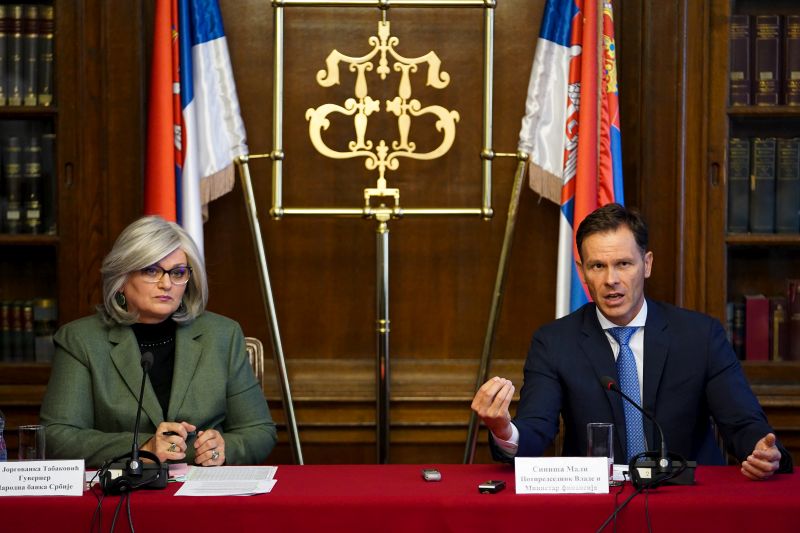Deputy Prime Minister and Minister of Finance Sinisa Mali stated today that a review of the Stand-by Arrangement with the International Monetary Fund (IMF) has been completed successfully and that this organisation assessed that Serbia has fulfilled everything agreed on time and in the right way.
- Serbia
Get to know Serbia
- Citizens
Culture and science
Health services
Pension and disability insurance
- Business
Employment
Economy
- Media
- Government
- Contact
Keep in touch
Keepin touch
Whether you have a question, comment, suggestion or any problem in the purview of the government, send us your message and we will try to respond as soon as possible. If your problem is not in our purview, we will forward your message to the relevant institution.
Review of arrangement with IMF completed successfully
Speaking at a joint press conference with Governor of the National Bank of Serbia Jorgovanka Tabakovic, on the occasion of positive evaluations by the IMF, Mali underlined that our economy, despite the big world crisis, is still stable.
He added that everything planned in the budget for the next year is realistic and will be fulfilled, first and foremost the increase in salaries, pensions and the minimum wage.
That is why the IMF, whose delegation was in Serbia on 19-31 October, suggested that we reduce the level of engagement with them, which means that the Arrangement will be more precautionary, as we no longer have the challenges that we had last year during the energy crisis, he explained.
The Deputy Prime Minister emphasised that according to the data from the Serbian Office of Statistics, Serbia’s GDP grew by 3.5 percent in the third quarter and that we are fully on track for our GDP to grow as much as 2.5 percent this year.
He pointed out that the projection for the next year is a GDP growth of 3.5 percent, that 2.36 million people work and pay taxes and contributions, as well as that Serbia has a record level of foreign direct investment which is expected to reach €4.5 billion this year.
According to him, the budget for next year also envisages capital investments worth RSD 600 billion, which is 6.8 percent of GDP, and that by the end of the year, Serbia's public debt will be approximately 52 percent.
In December, the average wage will be €840, so we are on track to fulfil the promise that by 2025 the average wage will be €1,000, he said, adding that a 17.8 percent increase in the minimum wage is also planned, which is the highest increase ever in percentage terms, and that the minimum wage will amount to RSD 47,154.
-
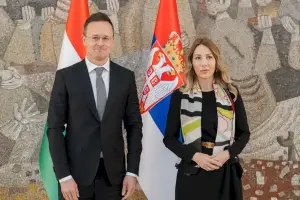 Belgrade, 15 January 2026
Belgrade, 15 January 2026Goal to finalise NIS negotiations by end of week
-
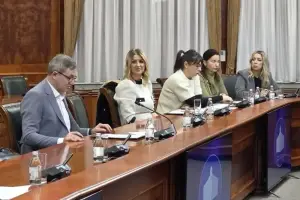 Belgrade, 23 December 2025
Belgrade, 23 December 2025Enhancing implementation of IPARD III programme
-
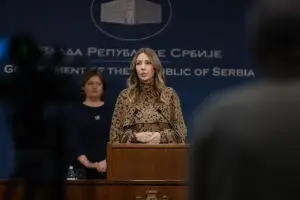 Belgrade, 12 December 2025
Belgrade, 12 December 2025Construction of gas interconnector with North Macedonia by end-2027
-
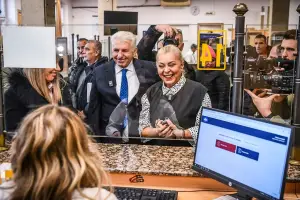 Belgrade, 8 December 2025
Belgrade, 8 December 2025Enormous public interest in registering illegal facilities
-
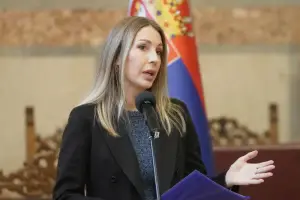 Belgrade, 8 December 2025
Belgrade, 8 December 2025State doing everything to preserve stability of energy supplies
-
 Belgrade, 5 December 2025
Belgrade, 5 December 2025State doing everything to avoid shortage of oil derivatives
-
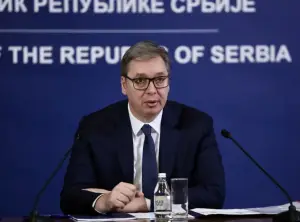 Belgrade, 2 December 2025
Belgrade, 2 December 2025Serbia has not received positive decision from US over NIS
-
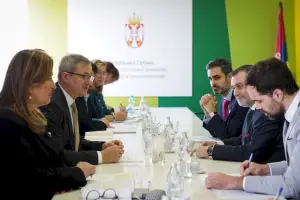 Belgrade, 2 December 2025
Belgrade, 2 December 2025Spanish companies invited to invest in Serbian agriculture
-
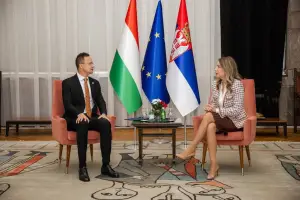 Belgrade, 26 November 2025
Belgrade, 26 November 2025Highest level of cooperation, information exchange with Hungary in field of energy
-
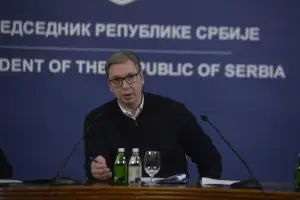 Belgrade, 25 November 2025
Belgrade, 25 November 2025OFAC’s decision on NIS licence in next four days

